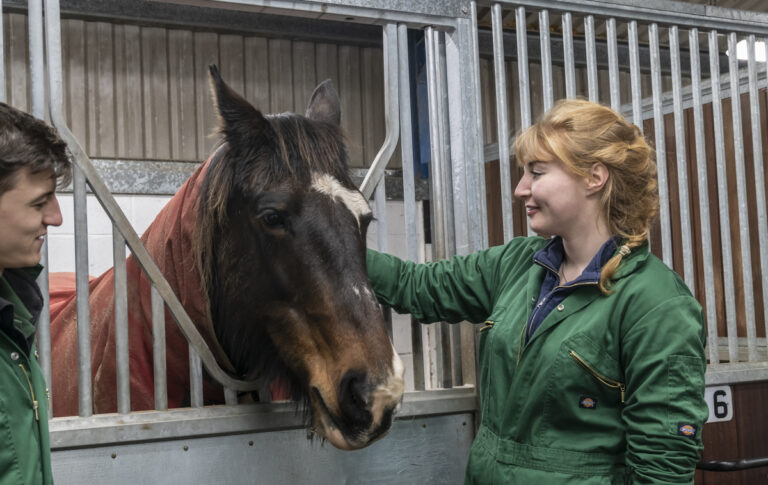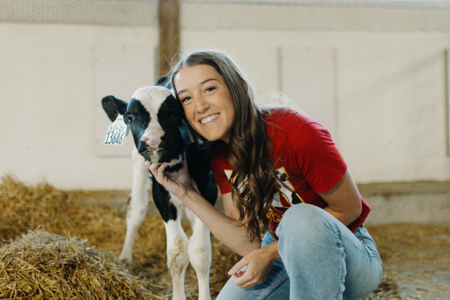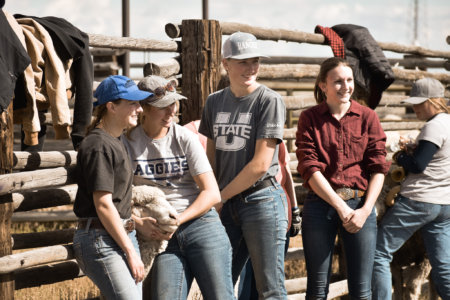
Veterinary science is far more than just treating fluffy kittens and playful puppies. It’s a crucial field safeguarding animal health and well-being, with a ripple effect impacting human health and society as a whole. A world without veterinarians is one where farm animals, vital for our food supply, would succumb to illnesses and cause food shortages. Zoonotic diseases, transferable from animals to humans, could run rampant without veterinary control programmes.
Studying veterinary science equips you with the knowledge to diagnose and treat animal diseases, perform surgeries, and ensure their well-being. It’s a blend of biology, chemistry, medicine, and even psychology, all tailored to the specific needs of different animal species.
What’s more, veterinarians are heroes on many fronts. They perform life-saving surgeries, diagnose and treat illnesses in all creatures, great and small, and conduct research that benefits animals and humans. For instance, research by veterinarians played a key role in developing rabies vaccines and protecting countless human lives. So, if you have a passion for animals and a scientific mind, consider veterinary science at these leading universities:
University of Liverpool
Nestled in the vibrant city of Liverpool, consistently ranked among the friendliest cities in the world, the University of Liverpool‘s School of Veterinary Science offers an excellent and innovative education that advances the health and well-being of animals, people, and the environment. Celebrating its 120th year anniversary in 2024, this is a school with a rich history paired with a forward-thinking approach, making it an ideal destination for veterinary science degrees, particularly for international students seeking an alternative to the US.
The school’s Bachelor of Veterinary Science (BVSc) programme is accredited by the American Veterinary Medical Association’s Council on Education (AVMA COE), ensuring graduates can pursue careers internationally. Ranked 11th in the QS World University Rankings by Subject 2024 for Veterinary Science, the programme has a rigorous five-year curriculum that fuses scientific knowledge with practical clinical training.
The BVSc starts with foundational animal handling, anatomy, animal welfare, and clinical skills. In the second year, you’ll build upon this knowledge with pathology, parasitology, practical techniques, and research skills. Year three dives deeper into pathology and parasitology, introduces clinical sciences, and allows you to take on a research project of your choice.
The fourth year marks a shift to the Leahurst Campus, a clinical training facility in the rural Wirral which houses two referral hospitals, two farms and is the base for the ambulatory practices. Here, you’ll complete a clinical theory course followed by 34 weeks of rotations in farm production animal, equine, and small animal medicine, including an exotics rotation. You can also participate in a three-month exchange programme with partner veterinary schools across Europe and the US.
The school offers in-depth clinical and research training delivered by a passionate and dedicated faculty. The best part? You’ll get lots of practical experience thanks to the university-owned facilities, including two farms (covering beef and dairy cattle, pigs and sheep), the diagnostic labs and post-mortem facilities and two referral hospitals for equine and small animals and . These provide access to over 10,000 small animal cases and 5,000 equine and large animal cases annually. A close association with Chester Zoo further enriches the learning experience. Apply to the Bachelor of Veterinary Science today.

UC Davis offers a four-year curriculum leading to a Doctor of Veterinary Medicine degree, combining academic study with clinical skills training. Source: UC Davis School of Veterinary Medicine/Facebook
UC Davis
The School of Veterinary Medicine at the University of California, Davis is home to roughly 600 students. It’s a vibrant community of talented and dedicated individuals driven to become veterinarians.
Often recognised as a top veterinary school by US News & World Report nationally and QS World University Rankings internationally, UC Davis sets the standard for veterinary education. Its curriculum, designed by leading faculty, offers a robust foundation in veterinary medicine with a focus on practical application.
The four-year Doctor of Veterinary Medicine (DVM) blends theory with practical application, ensuring a well-rounded foundation in comparative veterinary medicine. Students can then choose a specialisation in small or large animals before tailoring their studies toward specific career paths. The flexibility allows graduates to pursue careers in diverse fields, including small animal, large animal, equine, livestock, zoologic, or mixed animal practice, as well as poultry, laboratory animal, aquatic medicine, pathology, public health, or research.
Beyond the core curriculum, the school offers enriching opportunities for students to delve deeper. The STAR programme fosters research exploration within established labs, while international externships broaden perspectives through travel and exposure to another veterinary science system. Summer clinics further provide invaluable hands-on experience, solidifying knowledge and refining competencies.

The School of Veterinary Medicine and Animal Science (Vetschool) at the University of Copenhagen is Denmark’s only provider of veterinary education. Source: University of Copenhagen/Facebook
University of Copenhagen
The University of Copenhagen‘s School of Veterinary Medicine and Animal Science (Vetschool) offers students an enriching education in a vibrant and welcoming environment. Set in Copenhagen, a city consistently ranked among the world’s best for livability, safety, and green spaces, Vetschool provides a unique opportunity to combine academic excellence with a fulfilling student experience.
Vetschool holds the distinction of being the sole provider of veterinary education in Denmark. Its programmes are accredited by the European Association of Establishments for Veterinary Education (EAEVE), ensuring the highest quality and standards. The school’s research-driven approach fuses lectures with clinical training delivered by researchers, guaranteeing students a well-rounded education grounded in cutting-edge knowledge. Graduates are well-equipped to address critical issues in animal health, welfare, and food safety while promoting an understanding of human and animal health connections.
Vetschool offers undergraduate programmes in Animal Science and Veterinary Medicine. The Animal Science programme, taught in Danish, delves into animal health and nutrition, exploring its impact on humans and the environment. You’ll gain in-depth reproduction and animal training knowledge, contributing to improved animal welfare practices.
The Veterinary Medicine programme, taught in English, is the gateway to becoming a veterinarian in Denmark. This programme, recognised as one of the finest in Europe, uses two modern veterinary teaching hospitals to provide comprehensive clinical training. Graduates can pursue careers in clinical practice, animal welfare and disease control, or join the growing field of biomedicine, where qualified veterinarians are highly sought after.
*Some of the institutions featured in this article are commercial partners of Study International










